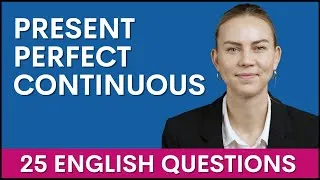व्हिडिओ प्ले करण्यासाठी कृपया खालील इंग्रजी सबटायटल्सवर डबल-क्लिक करा.
New videos
ही साइट इंग्रजी शिकण्यासाठी उपयुक्त असलेल्या YouTube व्हिडिओंची ओळख करून देईल. जगभरातील उत्कृष्ट शिक्षकांनी शिकवलेले इंग्रजी धडे तुम्हाला दिसतील. तेथून व्हिडिओ प्ले करण्यासाठी प्रत्येक व्हिडिओ पृष्ठावर प्रदर्शित केलेल्या इंग्रजी उपशीर्षकांवर डबल-क्लिक करा. उपशीर्षके व्हिडिओ प्लेबॅकसह समक्रमितपणे स्क्रोल करतात. तुमच्या काही टिप्पण्या किंवा विनंत्या असल्यास, कृपया हा संपर्क फॉर्म वापरून आमच्याशी संपर्क साधा.







